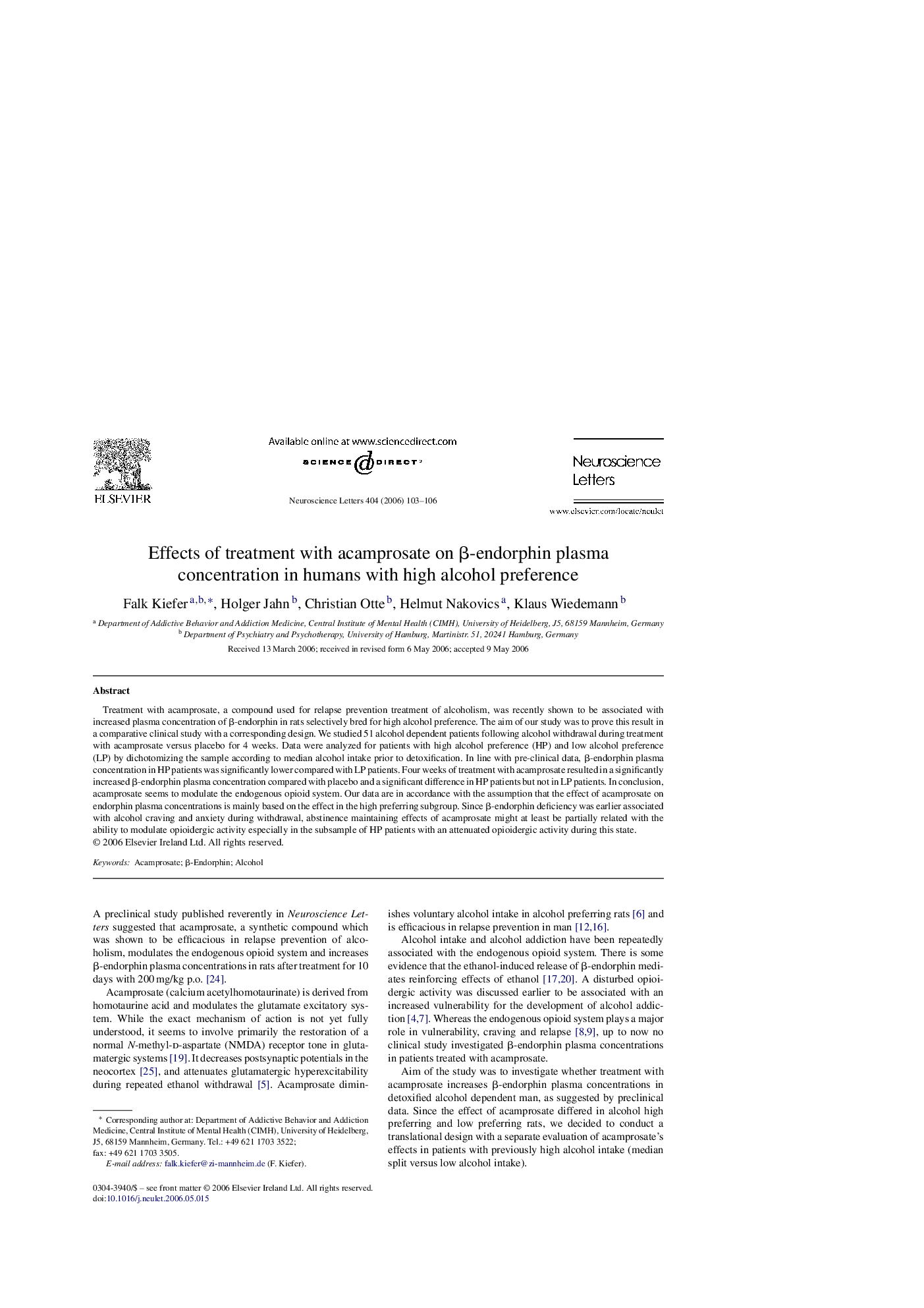| Article ID | Journal | Published Year | Pages | File Type |
|---|---|---|---|---|
| 4350289 | Neuroscience Letters | 2006 | 4 Pages |
Abstract
Treatment with acamprosate, a compound used for relapse prevention treatment of alcoholism, was recently shown to be associated with increased plasma concentration of β-endorphin in rats selectively bred for high alcohol preference. The aim of our study was to prove this result in a comparative clinical study with a corresponding design. We studied 51 alcohol dependent patients following alcohol withdrawal during treatment with acamprosate versus placebo for 4 weeks. Data were analyzed for patients with high alcohol preference (HP) and low alcohol preference (LP) by dichotomizing the sample according to median alcohol intake prior to detoxification. In line with pre-clinical data, β-endorphin plasma concentration in HP patients was significantly lower compared with LP patients. Four weeks of treatment with acamprosate resulted in a significantly increased β-endorphin plasma concentration compared with placebo and a significant difference in HP patients but not in LP patients. In conclusion, acamprosate seems to modulate the endogenous opioid system. Our data are in accordance with the assumption that the effect of acamprosate on endorphin plasma concentrations is mainly based on the effect in the high preferring subgroup. Since β-endorphin deficiency was earlier associated with alcohol craving and anxiety during withdrawal, abstinence maintaining effects of acamprosate might at least be partially related with the ability to modulate opioidergic activity especially in the subsample of HP patients with an attenuated opioidergic activity during this state.
Keywords
Related Topics
Life Sciences
Neuroscience
Neuroscience (General)
Authors
Falk Kiefer, Holger Jahn, Christian Otte, Helmut Nakovics, Klaus Wiedemann,
